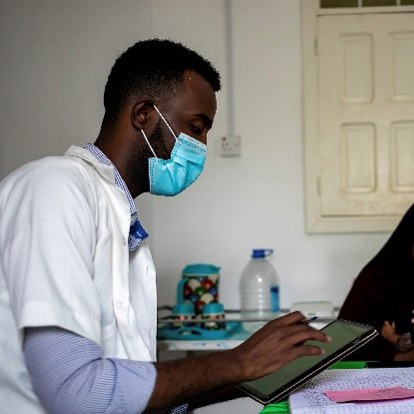July 2023 – July 2025
Beriberi is a debilitating disease caused by thiamine (Vitamin B1) deficiency that disproportionately affects and has a rapid onset among malnourished detainees. Surveying for thiamine deficiency among detainees in remote areas would improve the efficacy of malnutrition monitoring. Unfortunately, the collection of whole blood, stool and urine samples is impracticable in these areas, making assays based on saliva a highly valuable option. A new test strategy based on immuno-metabolic biomarkers from saliva has been proposed by EPFL for the pre-emptive detection of beriberi. Based on this, the team proposes to develop a salivary point-of-care test to identify detainees at risk of developing beriberi.
Expected impact: Enabling the ICRC to implement point-of-care salivary testing to screen detainees for suspected Vitamin B1 deficiency caused by malnutrition, with other potential applications for the management of malnutrition
EPFL Research Group: Dr. Horst Pick (Senior Scientist at School of Basic Sciences, Chemistry and Engineering), Dr. Duncan Sutherland
ICRC: Dr. Elena Leclerc (Head of Health in Detention at the Unit for Persons Deprived of Liberty).
Partners: Prof. Silue Kigbafori Dieudonné (Research group leader on Environment and Health at Centre Suisse de Recherches Scientifiques en Côte d’Ivoire(CSRS)), Dr. René Oka Kouame (Director of the National Nutrition Program Côte d’Ivoire).
Photo: ICRC
